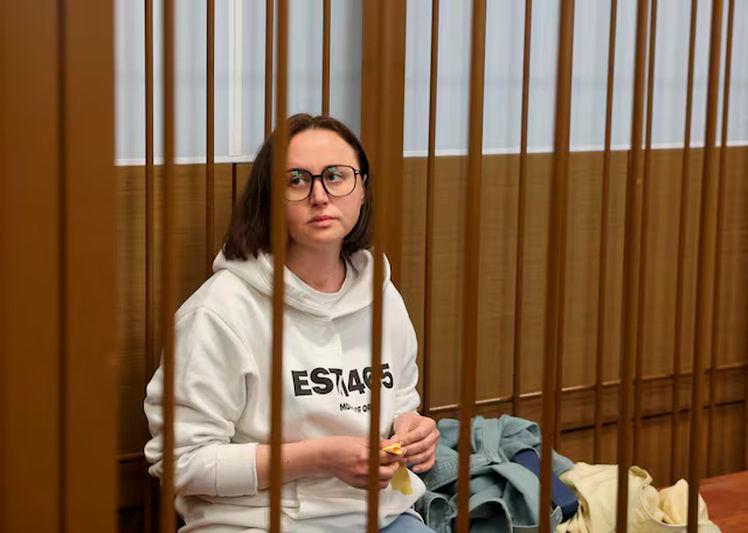LONDON: The judge in the trial of two leading Russian theatre figures accused of “justifying terrorism” approved a request from prosecutors on Thursday to ban journalists and members of the public from attending the remainder of the case.
Director Zhenya Berkovich and playwright Svetlana Petriychuk were arrested in May last year over their production of “Finist, the Brave Falcon”, which tells the story of Russian women who married Islamic State fighters.
The case represents a legal landmark in Russia and a test of the limits of artistic freedom. Berkovich and Petriychuk are the two most prominent cultural figures to go on trial since Russia invaded Ukraine in February 2022, prompting many artists, directors and writers to flee abroad.
Judge Yuri Massin approved a request from prosecutors to close the rest of the trial to the public because of alleged threats to some of the participants that had appeared in a newspaper and in Telegram channels, independent news outlet Mediazona reported from the court. It was not clear who had been threatened or how.
The judge announced his decision on the ninth day of the trial as the defence was about to start presenting its evidence. Defence lawyer Sergei Badamshin said the move showed the weakness of the prosecution’s case.
“On the one hand, this pleases the defence side - we are on the right track. On the other hand, it is manipulation,“ Mediazona quoted him as saying.
Fellow artists, human rights defenders and free speech campaigners have rallied in support of Berkovich, 39, and Petriychuk, 44, who both deny any guilt. They face up to seven years in prison if convicted.
“I staged the performance to prevent terrorism,“ Berkovich said at the opening of the trial last month, adding that she had “nothing but condemnation and disgust” towards terrorists.
Weeks before their trial, the pair were added to Russia’s official list of “terrorists and extremists”, joining many thousands of people and entities who have been similarly designated in a crackdown on perceived subversive activity that intensified after Russia’s invasion of Ukraine.
The Kremlin does not comment on individual cases but says Russia is engaged in an existential struggle with the West and needs to robustly uphold its laws and defend itself.
The prosecution case is based partly on testimony from an anonymous witness who secretly recorded the production on his phone and handed it to the authorities.
The witness, testifying under the pseudonym “Nikita”, has told the trial he believed the play depicted terrorists as victims, and the Russian state and society as guilty of pushing young girls into joining Islamic State.
He said he needed to keep his identify secret as he feared for his career and health if it were made public.









